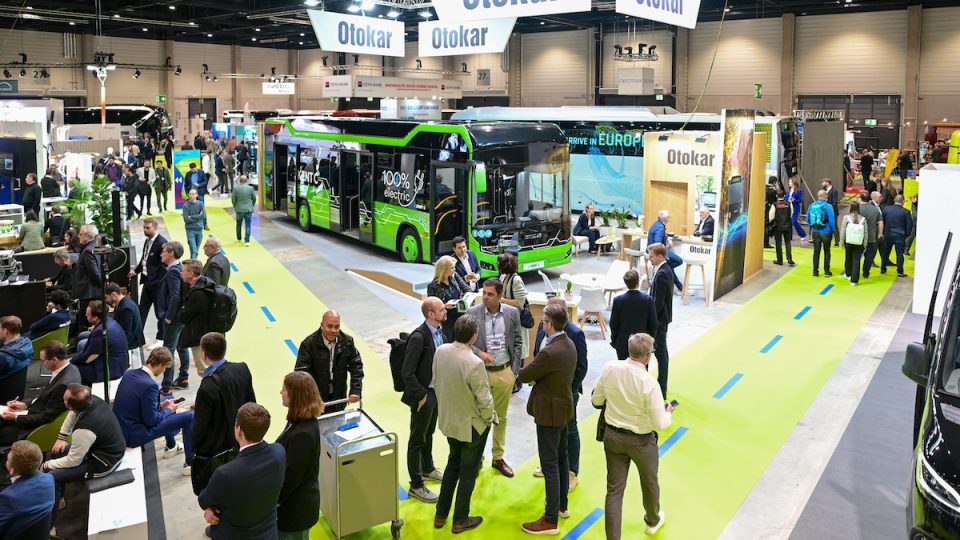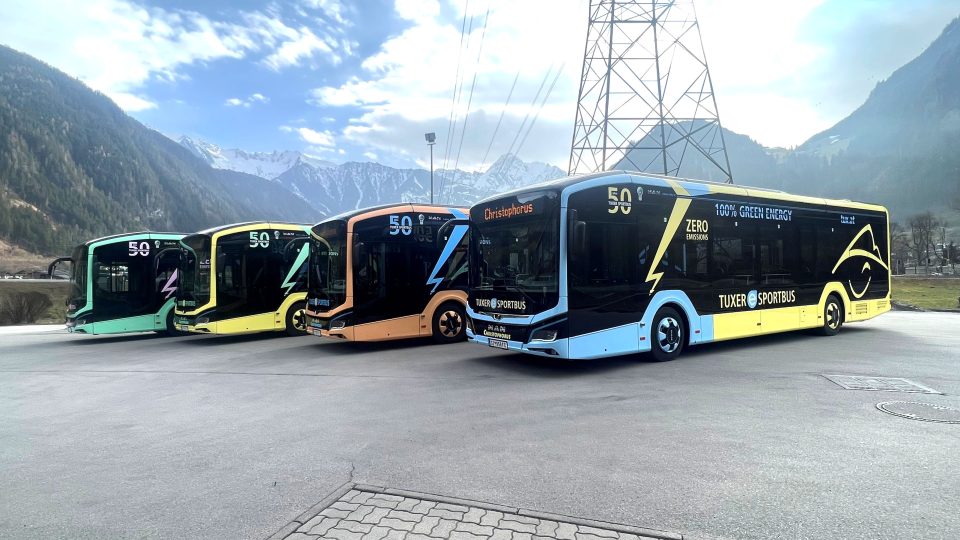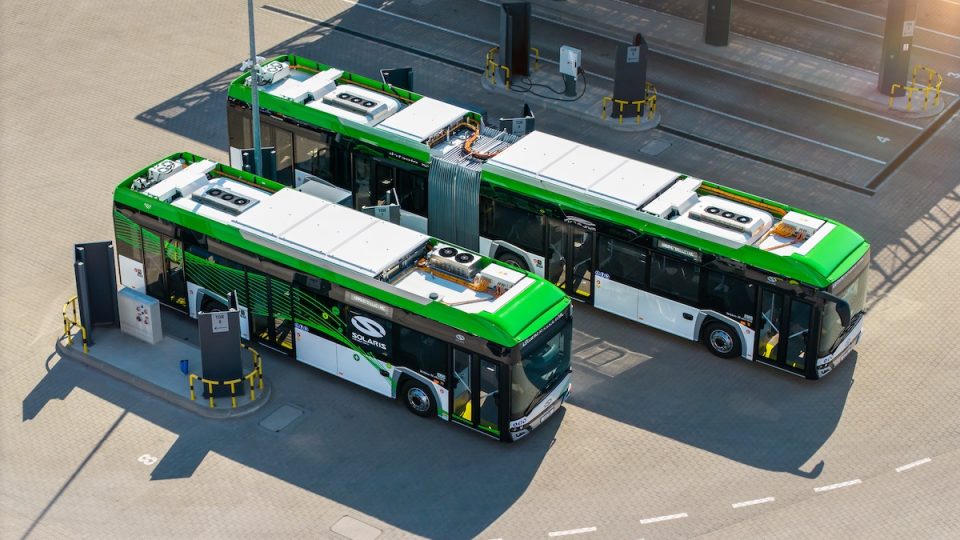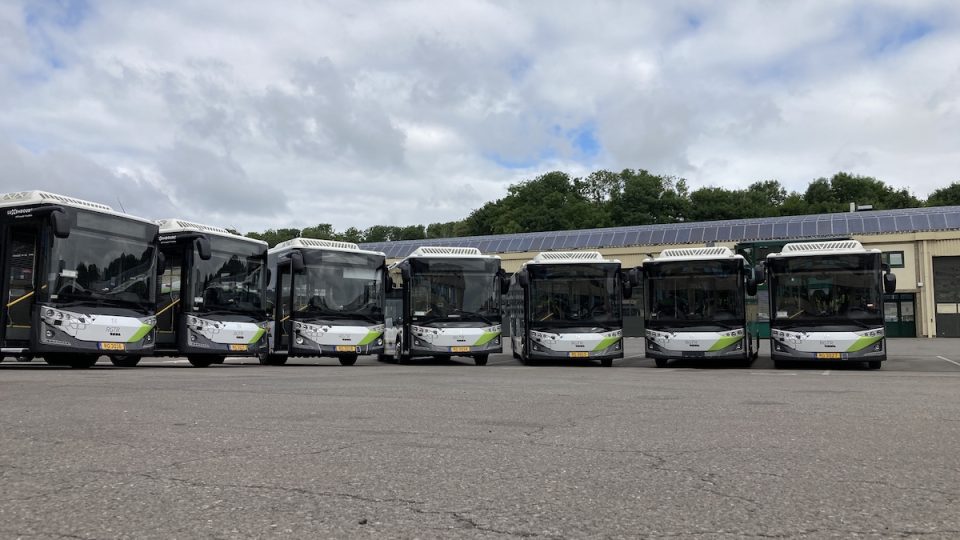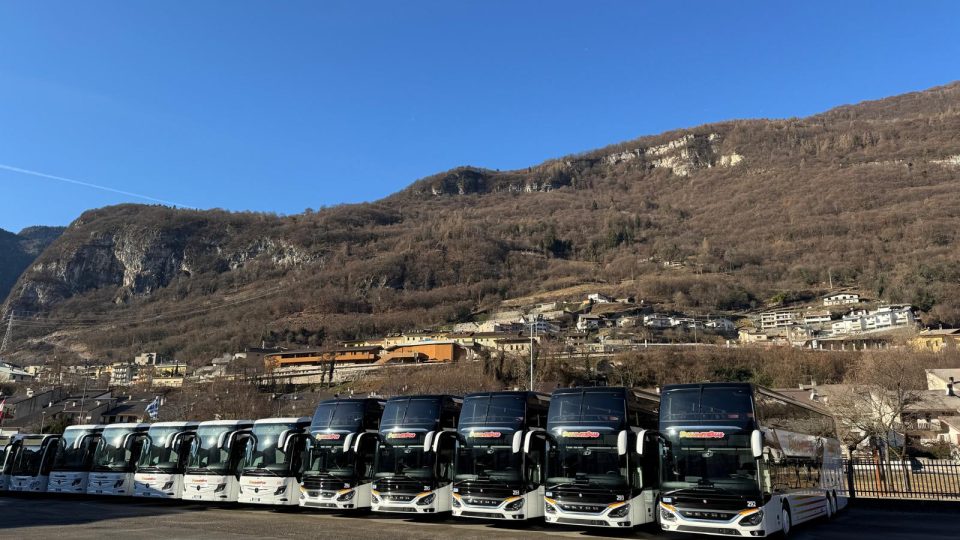Safra – Symbio: a deal to build 1,500 French-made fuel cell buses
Safra and Symbio announce a deal to bring to the market 1,500 French-made fuel cell buses. Having already partnered up in designing France’s first hydrogen-powered bus, Safra, based in Albi, and Symbio (a subsidiary of Michelin and Faurecia) agreed terms to build as many as 1,500 buses to be fitted with an optimised hydrogen system and […]
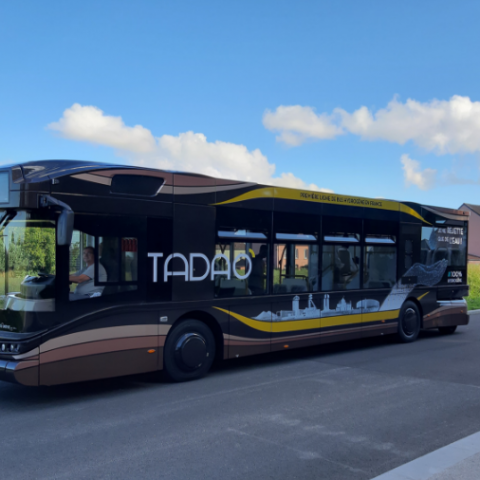
Safra and Symbio announce a deal to bring to the market 1,500 French-made fuel cell buses. Having already partnered up in designing France’s first hydrogen-powered bus, Safra, based in Albi, and Symbio (a subsidiary of Michelin and Faurecia) agreed terms to build as many as 1,500 buses to be fitted with an optimised hydrogen system and a range of services that suit how these vehicles will be used. The partnership between the two companies was launched in 2019.

Safra has invested in doubling the size of its manufacturing facility in order to significantly reduce manufacturing time and cost. “We have launched a first phase to accelerate our rate of production. This first step will allow us to quickly produce 140 buses per year. Then we plan to invest a total of €100 million over 10 years to produce more and faster in order to generate a significant reduction in costs”, says Vincent Lemaire, Safra’s CEO.

Safra and Symbio: new fuel cell buses available from end 2021
With the Businova—the first French hydrogen Safra-developed, Symbio-fitted bus — already on the streets of several cities such as Artois-Gohelle, Auxerre, Versailles and Le Mans, Safra and Symbio are announcing 1500 more 12-metre buses available from December 2021. “Safra is currently the only French manufacturer making hydrogen buses”, says Vincent Lemaire, CEO of the Albi-based company.
A ready to be mass produced technology by Safra – Symbio
These fuel cell buses will be equipped with Symbio’s plug-and-play solution, designed specifically to meet the needs of this market segment, Safra says. It contains a 45 kW fuel cell module. This technology is said to be ready to be mass produced, with significant cost advantage. It also includes other key components (especially a compressor and power converter) that have been pre-approved to optimise system performance while their integration is designed to meet the specific needs of these vehicles.
“A bus might be running seven days a week, explains Philippe Rosier, CEO of Symbio. This is why we have designed an integration pattern that makes maintenance easier, especially on certain components and filters. Above all, Symbio has a 24/7 maintenance services specifically adapted to commercial vehicles.”
Fuel cell buses for large-scale production
In short, Safra and Symbio are highlighting their desire to ramp up the roll out of a competitive hydrogen bus range and large-scale production for the purpose of international deployment. This is in line with French and European hydrogen strategy objectives.
“We have launched a first phase to accelerate our rate of production, which sees an expansion to our production tool in terms of materials, technology and human resources. This first step will allow us to quickly produce 140 buses per year. The next stage will be even more ambitious, as we plan to invest a total of €100 million over 10 years to produce more and faster in order to generate a significant reduction in costs”, says Vincent Lemaire.
Symbio fuel cell plant in France
Symbio has begun construction of Europe’s largest fuel cell plant in Saint Fons, France, where it will eventually produce 60,000 systems per year. The company is also continuing to improve its products’ performance through accelerated innovation processes. Specifically, it has submitted an Important Project of Common European Interest (IPCEI). “We have a clear roadmap to accelerate both innovation and production, says Philippe Rosier, CEO of the company. It is the key to our global competitiveness in all segments of hydrogen mobility”.

